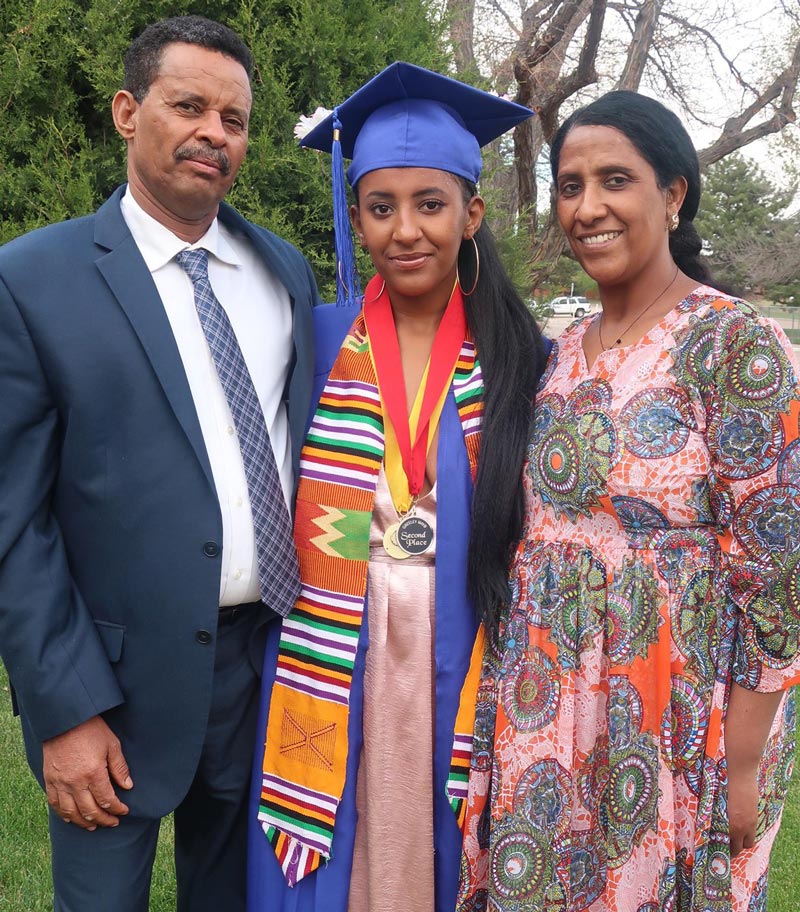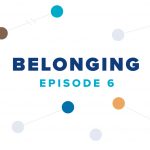At Home Creativity: Makida, Age 21
In response to the newfound realities of social distancing, including remote learning for students and working from home for many young professionals, Springtide™ Research Institute launched the At Home Creativity Campaign. This Spring 2020 campaign invited young people ages 13 to 25 in the United States to submit creative works responding to the prompt, “How are you finding connection and meaning in these days of physical distancing?” The variety of submissions included creative writing, poetry, essays, visual art, films, original music, and photography. The top five pieces were selected by a panel of judges at Springtide and are featured in the At Home Creativity series within our Voices of Young People blog.
Here is a short film, submitted by Makida, 21, in Colorado:
“Don’t Rush Challenge: UNCO Habesha Edition”
All of the young women in this video are current students or 2020 graduates from the University of Northern Colorado (UNCO). They also share a connection as Habesha women, with Ethiopian and Eritrean heritage. As friends they have been apart from one another through remote learning, but this collaborative video allowed them to create something together, even while staying at home. As the “Don’t Rush Challenge” was trending across social media, these friends put their own unique spin on it, celebrating the Habesha tradition of preparing a coffee ceremony.
In order of appearance:
Makida, 21
Emnet, 19
Milcha, 18
Warsa, 21
Elsa, 22
Chapter, 19
Elfa, 18
Samrawit, 19
Our Q&A with Makida:
What inspired you to create this piece?
The “Don’t Rush Challenge” was a trend we were all seeing on Instagram and Tik Tok. Milcha had the idea to create a Habesha edition of this challenge where we could feature our traditional clothing as the outfit changes/upgrades. We used the cultural landmark of Ethiopian coffee as the main transaction to showcase our culture around this shared tradition.
What was your creative process for making this piece at home (including materials or programs you utilized)?
An Ethiopian/Eritrean coffee ceremony is special part of our culture; it speaks of friendship and hospitality. We all had the different coffee ceremony pieces in our homes, which include roasting the coffee beans, fanning the flames, spreading the grounds on a straw lid, brewing in a clay coffee pot known as a jebena, and pouring into tiny coffee cups. At the end, it builds to the whole ceremony with all of the elements together. We each had our siblings help us with recording our parts and thinking about how we would pass each element on to the next person.
Who are the people you’re safely connecting with during this time of social distancing?
In person, I’m just connecting with family at this point. But this project allowed me to connect more with these friends, even if we can’t see each other during this time.
Are trusted adults checking in with you (inside or outside your home) during this time? What does that connection mean to you?
I have a big family. I’m the first person shown in the video, and my younger sister is the last person shown in the video, so we all check in with each other. I’m grateful to have my family all together and to have my parents and siblings here to celebrate my graduation from UNCO, even if the ceremony can’t happen right now. For my graduation, I put on my cap and gown at home, and my parents dressed up to celebrate with me too.

Springtide’s recent Social Distance Study found that for many young people, sheltering in place and social distancing provoke fear and uncertainty, leading to increased levels of isolation, loneliness, and anxiety. This survey also found that the single most important way to mitigate loneliness is for trusted adults to reach out and connect with young people.
Although young people continue to find creative outlets even through the challenges of COVID-19, remember that our research confirms they still need trusted adults to reach out to them. Consider how you might connect to the young people in your circle of care by engaging their interests or encouraging their creative pursuits.
________
Blog post photo credit: Makida submitted this photo from a time where her friends were still together, sharing their Habesha culture on the UNCO campus, from left to right: Samrawit, Warsa, and Milcha.






